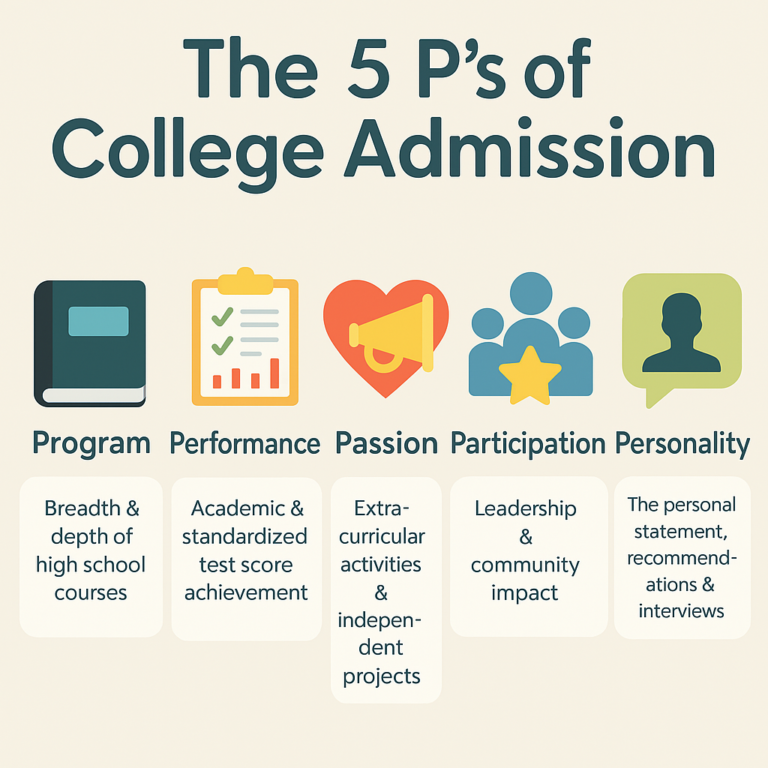More Important Than a Good School District? The Key to GPA Management
Dear Parents,
Many parents with children attending U.S. high schools often begin their college admissions journey by prioritizing a “good school district.” Naturally, studying in a strong academic environment offers certain advantages. However, when it comes to how U.S. college admissions officers evaluate students, what truly matters is not the school’s reputation or location, but rather the student’s individual academic record — specifically, their GPA.
Today, I would like to explore with you why GPA is even more important than school district quality, and share essential strategies for effective GPA management.
1. GPA Is Not Just a Simple Average
Many parents think of GPA as the average of all subject grades, but colleges look far beyond the number itself. They evaluate:
- What courses were taken
- How rigorous those courses were
- What the grades mean within the context of the student’s school
For example, if Student A receives a B+ in a competitive, top-tier school district, colleges may view this as a sign of academic effort and persistence in a challenging environment. On the other hand, if Student B takes only easy classes in a less demanding school and earns all A’s, admissions officers may not view those grades as a true reflection of academic strength.
What truly matters is:
- Maintaining high grades while taking challenging courses
- Increasing course difficulty over time, especially in core subjects
- Demonstrating a consistent upward trend in academic performance
2. The Hidden Risks of a “Good School District”
Schools in strong districts often offer excellent teachers, a wide range of AP courses, and abundant academic resources. However, the level of competition among students can also be extremely high. Some students may become overwhelmed or discouraged, leading to decreased academic performance and self-confidence.
Conversely, students in moderately-ranked school districts can still achieve excellent GPAs through careful planning and the right support. By taking advantage of AP and Dual Enrollment courses, students can demonstrate rigor regardless of where they attend school.
In short, what matters more than school ranking is a strategic approach to your child’s learning environment.
3. Core Strategies for GPA Management
✔️ 1) Course Selection Strategy
Instead of choosing the most difficult classes across the board, students should select courses that align with their strengths and interests.
- Select a balanced combination of core subjects (English, Math, Science, Social Studies, and Foreign Language)
- In 11th and 12th grade, be sure to include AP or Honors classes relevant to the student’s intended major
✔️ 2) Grade Maintenance Strategy
Long-term habits such as completing assignments, preparing for exams, engaging in projects, and maintaining regular attendance are critical.
- If a student’s grade in any subject begins to drop, early intervention through tutoring or academic coaching is essential.
✔️ 3) Off-Semester Opportunities for Academic Growth
During summer or breaks, students can strengthen their academic profile by:
- Taking online AP courses
- Enrolling in college-level classes (Dual Enrollment)
- Participating in writing workshops or college essay preparation programs
These activities indirectly improve GPA quality by building academic confidence and rigor.
4. How Colleges Evaluate GPA
U.S. colleges typically assess GPA based on three major criteria:
| Evaluation Factor | Explanation |
|---|---|
| Raw GPA | The actual numerical GPA |
| Rigor | Whether the student took AP, Honors, or Dual Enrollment courses |
| Context | The academic level of the school, available coursework, and relative performance within the school |
In other words, colleges interpret GPA not just as a number, but as a reflection of the environment and effort that produced it.
5. What Is Considered a “Good” GPA?
Since grading systems vary between schools, and some use weighted vs. unweighted GPAs, there is no single standard. However, for students aiming for top-tier universities, the following benchmarks are generally recommended:
- Unweighted GPA: 3.8 or higher
- Weighted GPA: 4.3 or higher
- AP/DE Courses: At least 12 by graduation
Along with maintaining a strong GPA, it is important to balance academics with other areas such as leadership, research, and community service.
Final Thoughts: What Truly Matters Is Consistent Growth
A good school district does not guarantee college admission success. It is just one of many factors. What truly matters is how effectively your child manages their GPA, grows through academic challenges, and demonstrates their commitment to learning.
Carefully analyzing your child’s strengths and weaknesses, creating a year-by-year academic strategy, and seeking expert guidance when necessary are key to GPA success.
At Elite Prep, we offer personalized support in GPA management, academic planning, and college admissions. Please feel free to contact us anytime for a consultation.
Thank you very much for reading.
Andy Lee
Elite Prep Suwanee powered by Elite Open School
📍 1291 Old Peachtree Rd, NW #127, Suwanee, GA 30024
🌐 eliteprep.com/suwanee
📧 andy.lee@eliteprep.com
📞 Tel & Text: 470.253.1004
🎥 www.youtube.com/@ElitePrepSuwanee
1:1 Educational Consulting (Online/In-Person): Consultation Request Form







